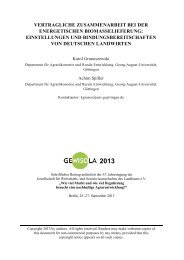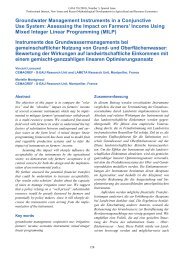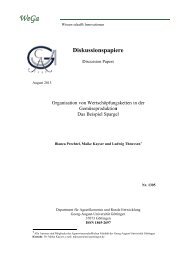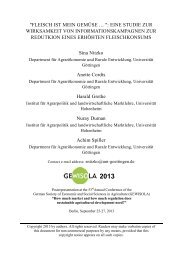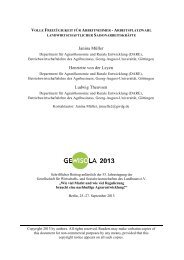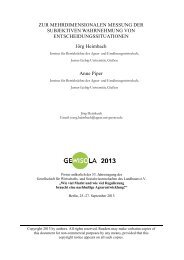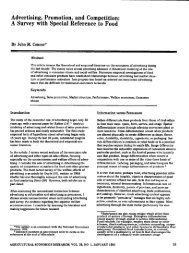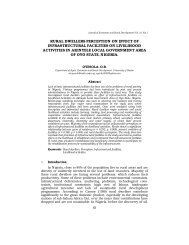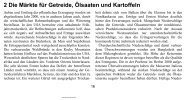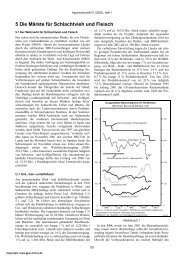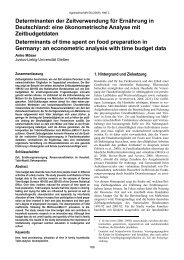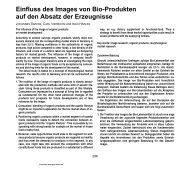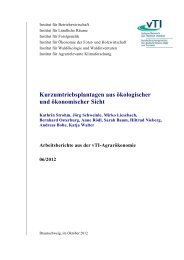District Institutes of Education and Training - Teacher Education
District Institutes of Education and Training - Teacher Education
District Institutes of Education and Training - Teacher Education
Create successful ePaper yourself
Turn your PDF publications into a flip-book with our unique Google optimized e-Paper software.
<strong>District</strong> <strong>Institutes</strong> <strong>of</strong> <strong>Education</strong> <strong>and</strong> <strong>Training</strong>: A Comparative Study in Three Indian States<br />
Progress towards adoption <strong>of</strong> the second model paves the way for further refinement<br />
<strong>of</strong> the focus <strong>of</strong> teacher development activities across the system. This study has<br />
provided evidence that the key to this may lie in a change <strong>of</strong> emphasis. At present,<br />
DIETs are pursuing a model <strong>of</strong> input-led programmes for improving the skills <strong>and</strong><br />
knowledge <strong>of</strong> teachers. <strong>Teacher</strong>s – both pre- <strong>and</strong> in-service – tend to have a weak<br />
belief in the efficacy <strong>of</strong> such training <strong>and</strong> take-up <strong>of</strong> training messages is low. This<br />
training isolates individual teachers from school contexts, does not acknowledge<br />
their value frameworks <strong>and</strong> practitioner underst<strong>and</strong>ings, <strong>and</strong> holds them responsible<br />
for not ‘implementing training’. This model struggles further to find relevance in a<br />
decentralising context because it is unable to engage teachers in developing a sense<br />
<strong>of</strong> pr<strong>of</strong>essional agency <strong>and</strong> accountability towards the learning <strong>of</strong> all children.<br />
10.3.5 Nurturing pr<strong>of</strong>essional accountability<br />
The findings <strong>of</strong> this study indicate the need for exploration <strong>of</strong> the relative merits <strong>of</strong><br />
rooting teacher development through DIETs <strong>and</strong> their associated Resource Centres<br />
in a school improvement approach, rather than in teacher improvement as it is at<br />
present. This would provide a meaningful focus for teacher development as one <strong>of</strong><br />
many activities converging at the school around improving the quality <strong>of</strong> children’s<br />
learning (see Fig. 10.5). This study found a focus on children’s learning to be largely<br />
missing in teacher development through DIETs, whether during pre- or in-service<br />
training. The evidence presented here indicates a need for much greater systemic<br />
awareness <strong>of</strong> the need to nurture pr<strong>of</strong>essional accountability for children’s learning.<br />
Figure 10.5: DIET support for Whole School improvement<br />
Childcentred<br />
curriculum<br />
Positive<br />
teacher<br />
attitudes<br />
Enrolment<br />
<strong>of</strong> all eligible<br />
children<br />
Context<br />
sensitive<br />
teacher<br />
education<br />
Reduction<br />
in drop-outs<br />
<strong>and</strong> repeaters<br />
WHOLE SCHOOL<br />
IMPROVEMENT<br />
▲ ▲<br />
Wellsupported<br />
teachers<br />
(by DIETS +<br />
CRCs)<br />
Parent <strong>and</strong><br />
community<br />
involvement<br />
Flexible<br />
teaching<br />
methods<br />
Appropriate<br />
teaching aids<br />
<strong>and</strong> equipment<br />
Source: adapted from Whole School improvement, eenet newsletter no. 7, 2003 [eenet.org.uk]<br />
210 DFID



